Movies - Louise Violet: The inspiration behind Louise Violet, a tribute to the Republic and its values
By Mulder, 20 october 2024
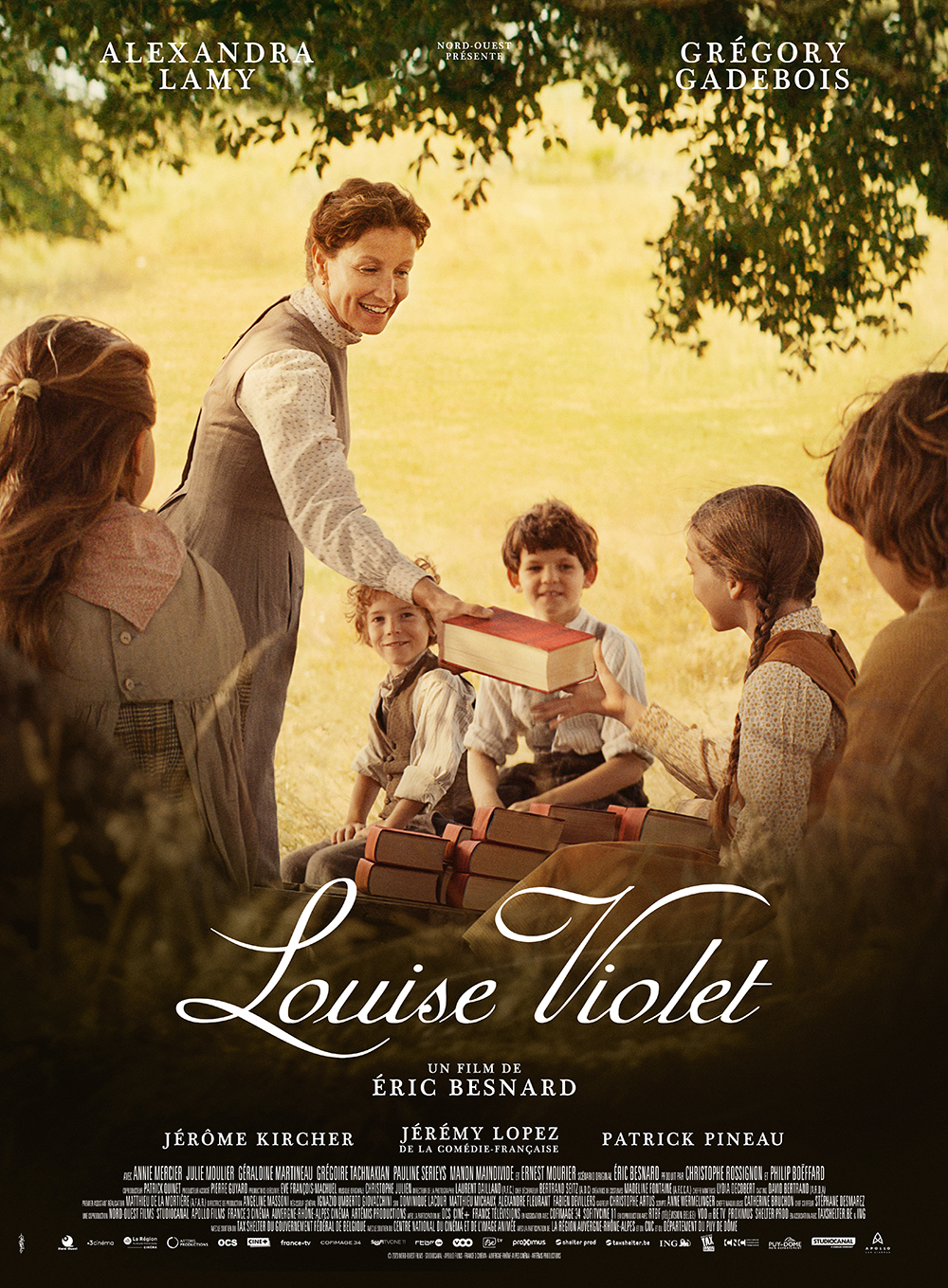
Éric Besnard's new film, Louise Violet, plunges into rural France in 1889 to tell the story of the eponymous schoolteacher, Louise Violet, played by Alexandra Lamy. Inspired by the values of the Republic and leading figures such as Louise Michel, the fictional heroine embodies the struggles of the first schoolteachers sent into the countryside to establish free, secular public schools. This republican mission brought Louise face-to-face with the villagers, for whom education represented an intrusion into their traditions and autonomy. Through Louise, Besnard pays homage to the historic battles for equality, knowledge and the emancipation of society through education.
In Louise Violet, Alexandra Lamy takes on the role of a strong woman, marked by a painful past, but determined to fulfill her duty. Lamy, who is often associated with lighter roles, slips into the skin of a complex, committed reformer. Louise Violet's character and story embody the republican ideal. She is a fighter who survived the ordeals of the Paris Commune, ready to defy retrograde mentalities to offer children a freer, more enlightened future. This fictional character echoes Louise Michel, revolutionary and schoolteacher, whose spirit of resistance and commitment to the education of underprivileged children are still very much alive in the collective imagination. Lamy lends Louise Violet a poignant depth, a mixture of fragility and strength, restrained anger and compassion for children.

For Éric Besnard, Louise Violet is much more than a simple period film. It marks a return to the roots of the Republic and its fundamental values. Through this story, the director explores the opposition between progress and conservatism, particularly in the rural context of the late 19th century. It is also a reminder of the struggle to make education accessible to all, a struggle that was far from easy, but one that has shaped modern French society. The film was shot in the magnificent, authentic landscapes of the Haute-Loire and Puy-de-Dôme regions, allowing total immersion in the period and underlining the peasants' attachment to their land, an attachment that makes Louise's mission all the more challenging.
To enrich Louise's character and underline her strangeness in the village, Éric Besnard chose to surround Alexandra Lamy with actors from the theater, such as Jérémy Lopez from the Comédie-Française. The contrast between the actress, accustomed to film roles, and her theatrical partners adds a unique tension that serves the story by showing the conflicts between the schoolteacher and the villagers. Grégory Gadebois, in the role of mayor Joseph, and Jérémy Lopez, playing the violent patriarch Rémy, lend the film a dramatic intensity and an anchoring in rural tradition. This casting reinforces the film's themes, where modernity clashes with generations of values rooted in the farming world.
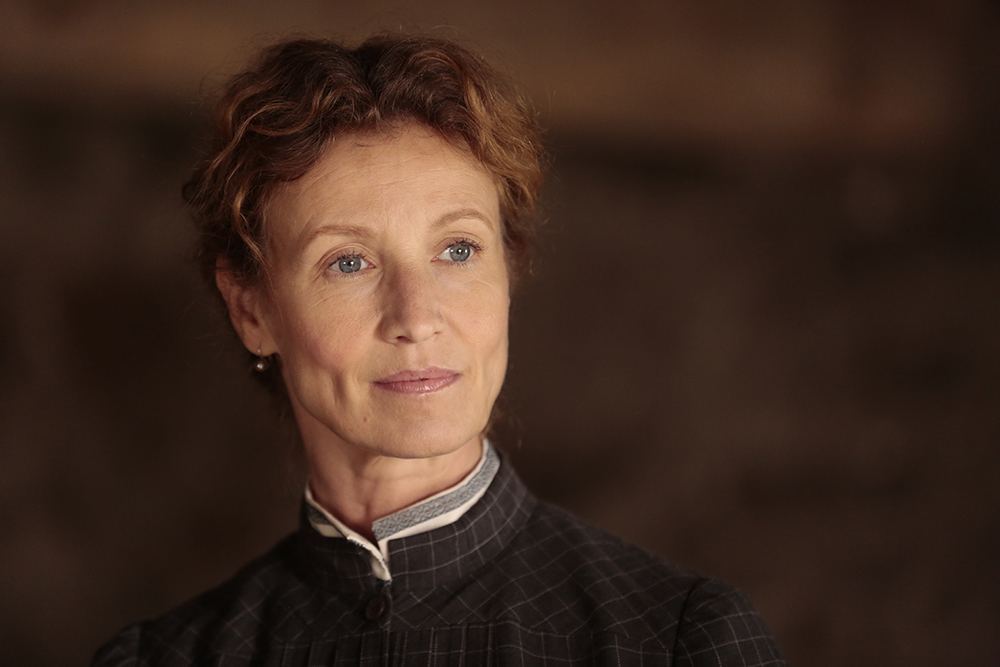
Louise Violet's characters represent a wide spectrum of rural society at the time, from the patriarchal figure embodied by Rémy, to the mayor's mother played by Annie Mercier, to the mayor himself, Joseph, played by Grégory Gadebois. The latter, far from the stereotype of the brutal local authority, reveals a complex humanity, a man in search of social ascension for whom school becomes a source of pride, and perhaps of rapprochement with Louise. To build these characters, Éric Besnard researched the social tensions of the late 19th century, in particular the mistrust of republican reforms perceived as threats to peasant life.
I
n Louise Violet's context, the republican school symbolized a new social order based on equality and secularism.
Éric Besnard wanted to show the peasants' resistance to this school, which they saw as stealing much-needed manpower from the fields and introducing knowledge that could drive their children out of the village. This fight for freedom through knowledge is at the heart of the film, reflecting the challenges faced by the first secular schoolteachers. Through Louise, Besnard evokes the importance of education in building a united society, a struggle he believes remains relevant today in an increasingly fragmented society.
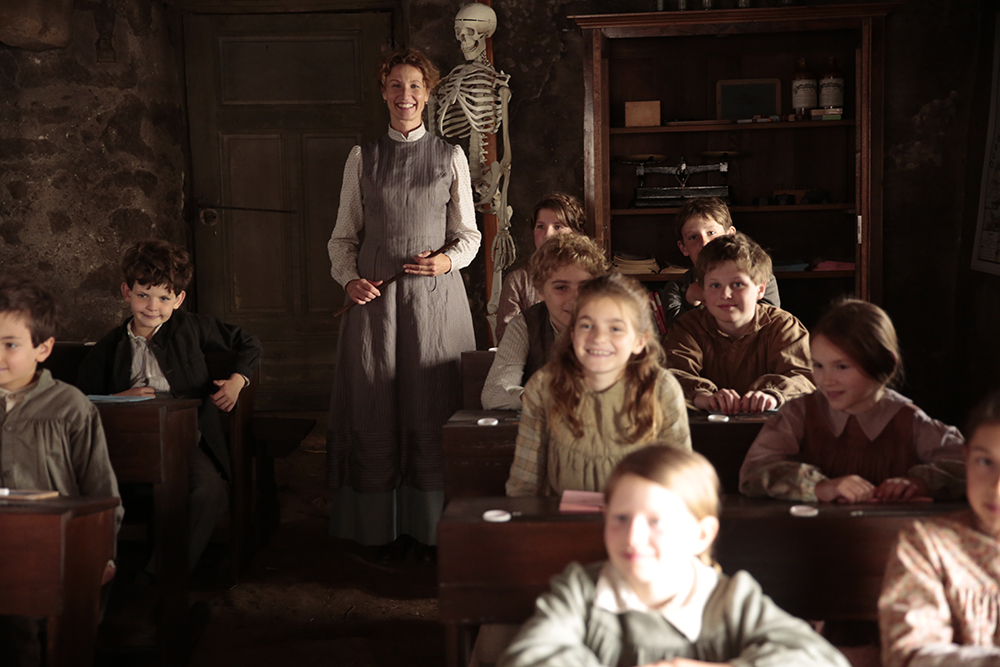
Christophe Julien's music and Laurent Dailland's photography reinforce the film's authenticity. Julien's soundtrack respects the atmosphere of the period, while paying homage to the austere beauty of the French countryside. Dailland's photography captures the wild landscapes and the play of natural light and shadow, creating tableaux that evoke the hardships and harshness of rural life. Shot in part without artificial light, the film uses daylight to accentuate the harshness of winter and the gentleness of spring, reminding us that each season imposed a particular rhythm on the peasants of the time.
Louise Violet is the second part of a triptych planned by Eric Besnard, after Délicieux, about emblematic figures of the French Republic. For Eric Besnard, each film explores a fundamental aspect of French identity: in this case, education and secularism. The aim is to remind us that these values, now central to French society, are the fruit of a long struggle against ignorance and conservatism. As a connoisseur of French history, Besnard seeks not only to entertain, but also to educate and provoke reflection on modernity and the importance of knowing and defending one's roots.
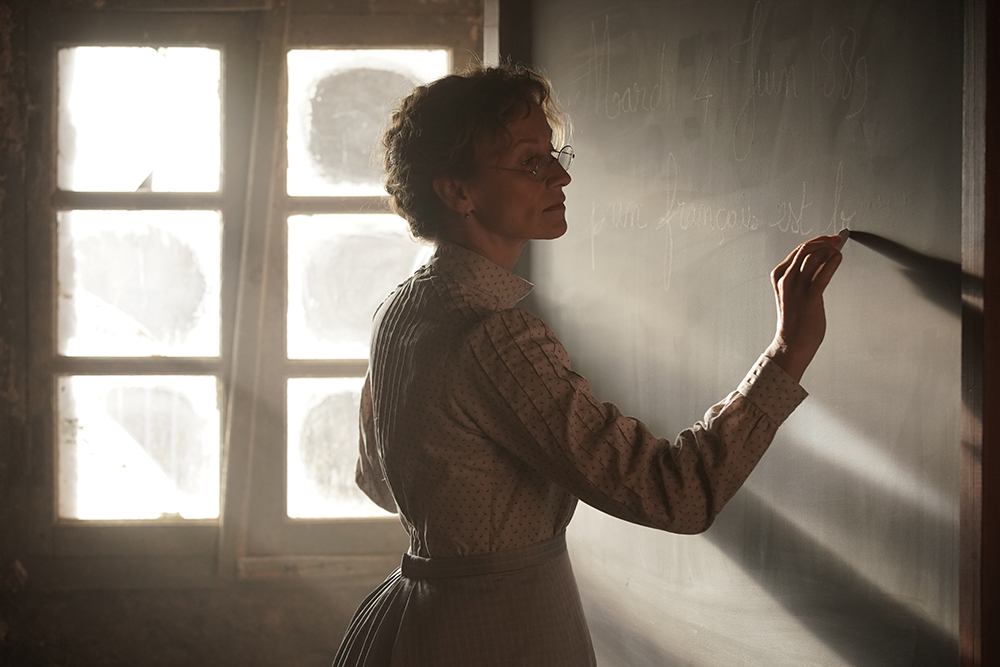
Distributed by Apollo Films and Orange Studio, Louise Violet will be released in French cinemas on November 6, 2024. Backed by an ambitious production team including Nord-Ouest Films, StudioCanal and several TV channels, the film promises to be a rich historical and social fresco. Through the prism of history, Éric Besnard offers a work that invites viewers to reconsider the values of the Republic and the importance of education in building an egalitarian, emancipated society.
Synopsis:
1889. Sent to a village in the French countryside, schoolteacher Louise Violet must impose the Republic's free, compulsory and secular school system. A mission that doesn't endear her to the children... or their parents.
Louise Violet
Written and directed by Eric Besnard
Produced by Christophe Rossignon, Philip Boëffard
Starring Actors and actresses, Alexandra Lamy, Grégory Gadebois, Jérôme Kircher, Jeremy Lopez, Patrick Pineau, Annie Mercier, Julie Moulier, Géraldine Martineau, Grégoire Tachnakian, Pauline Serieys , Manon Maindivide , Ernest Mourier
Music by Christophe Julien
Cinematography: Laurent Dailland
Edited by Lydia Decobert
Production companies: Nord-Ouest Films, StudioCanal, Apollo Films, France 3 Cinéma, Auvergne-Rhône-Alpes Cinéma, Artémis Productions
Distributed by Apollo Films / Orange Studio (France)
Release date : November 6 2024 (France)
Running time : 108 minutes
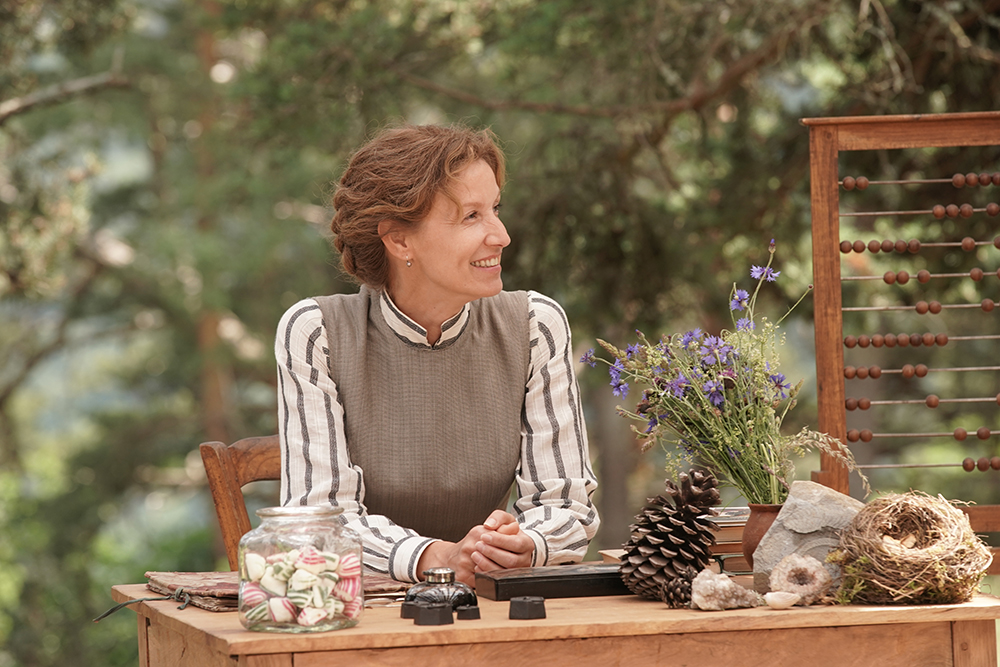
Photos: Copyright David Koskas - Nord-Ouest Films

